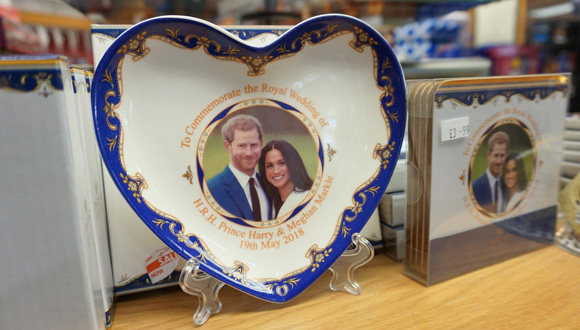
Is It Game Over for The British Monarchy?
Written on | Politics & Society
TAU scholars weigh in on whether losing the queen will mean losing the game.
Duchess Meghan and Prince Harry’s bombshell interview on the Oprah Winfrey Show was watched by millions around the world, and subjected the institution of the royal British family to fierce scrutiny. The interview sparked debates in media on the future of the monarchy, some arguing that it is an outdated form of government.
The recent death of Queen Elizabeth II’s husband, Prince Philip, is a reminder that the Queen’s nearly 70-year reign is in its final stretch. Most Brits do not remember a time when Queen Elizabeth II, now 95, did not reside in the Buckingham Palace. Prince Charles III (72), the Queen’s eldest son and heir, is undeniably less popular than his mother, prompting the question of whether the British monarchy will survive for much longer after Elizabeth is gone. Is it time to give the monarchy a royal good-bye wave? We asked a few of our scholars to share some thoughts on the situation of the British monarchy today.
 Royal wedding souvenirs commemorating Harry and Meghan’s royal wedding
Royal wedding souvenirs commemorating Harry and Meghan’s royal wedding
A Royal Mess?
For a cultural and historical perspective, we turned to Prof. Noam Reisner, who is an expert on Renaissance English literature and culture from TAU’s Department of English and American Studies in The Lester and Sally Entin Faculty of Humanities. Reisner doesn’t think the British monarchy is in the midst of any form of existential crisis. Reisner explains, “With the exception of a brief and unsuccessful 11-year stint with republican rule, which ended in 1660, England has had a remarkable continuity of royals. After the 11-year long, failed republican experiment, monarchy was quickly restored and the Brits never looked back.” The challenge for Elizabeth and her heirs going forward, he says, will be to reinterpret the royal house’s contract with the people, to keep it relevant. But its footing is strong: “For the Brits, the monarchy is not an invented tradition, but rather it is a part of the country’s DNA, and strongly ingrained in its culture. Its popularity remains high, as it symbolizes to the Brits what they are as a people: Constant, united and permanent.”Royal Plates and Netflix
“Constant, united and permanent” would make an excellent tagline for the Royal House, wouldn’t it? Could the British Monarchy be regarded as a brand? We asked Prof. Shai Danziger from TAU’s Coller School of Management, a professor of marketing who is fascinated by how consumers process information and make decisions. Prof. Shai Danziger suggests the success of the British royal family as a brand can be measured by comparing it to other long lasting brands that have been able to retain customer loyalty over decades: “I see a successful brand as having unique and clear identifying features and as having a set of strong, favorable and unique associations in the minds of its primary stakeholders (typically consumers). The more readily accessible the brand is in consumers’ mind, and the stronger, more favorable and unique associations it has, the more consumers will be willing to ‘invest’ resources such as time and money in the brand. Would a consumer be willing to pay more for a branded plate with the queen’s picture on it than one without? Or, in the context of media consumption, would consumers be willing to consume more media when they know it is about the royal family – such as reading tabloid articles about William and Kate and watching Netflix series like ‘The Crown’?” Judging by the many millions of households worldwide (the UK and the US being the strongest markets) that have watched the royal drama since it began in 2016, the royal brand is faring well. What does the future look like, for the British monarchy, as a corporate brand? Danziger says, “only the future will tell whether younger consumers will still find the royal family relevant and interesting or a remnant of the past. In a world where values are rapidly changing and social media dictates popularity, it may be difficult for a very traditional establishment such as the royal family to keep up with the times.” Royal wedding souvenirs commemorating Harry and Meghan’s royal wedding
Royal wedding souvenirs commemorating Harry and Meghan’s royal wedding
